CREATIVE UTTARAKHAND’S BOOK FAIR INITIATIVE : Cauldron of Intellectuality
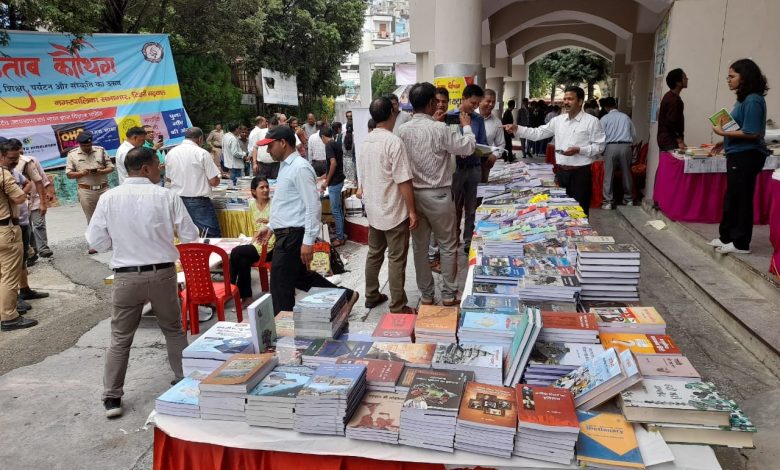
By SURESH NAUTIYAL
The origin of book fairs can be traced in Germany – in Frankfurt and then in Leipzig. In 1462, the first book fair was held in Frankfurt, which has now evolved into the largest publishing and professional fair in the world. It is attended by exhibitors from all the continents and has the highest turnover and audience. The fact that about 80 percent of the global copyright agreements are negotiated at the Frankfurt Book Fair.





Back home, the New Delhi World Book Fair is country’s second oldest book fair after the Kolkata Book Fair. Since 2013, the New Delhi World Book Fair has been organised by the National Book Trust (NBT) in association with the India Trade Promotion Organisation (ITPO).
In the state of Uttarakhand (India), the book fair tradition, Kitab Kautik/Kauthig, has been replicated by an enthusiast group, Creative Uttarakhand-Myor Pahar, led by Charu Tiwari, Dayal Pandey, and Hem Pant; though, Dayal and Hem are the two sturdy wheels of the vehicle.
Literary and scholastic book fairs carry on this tradition of the longevity of the books that serves to promote the habit of reading in people by offering them a wide selection of books. These fairs also give an opportunity to read by choice and not by compulsion.
The book fairs are essentially spaces for the promotion of reading and learning of biblio-diversity (a term that refers to the necessary diversity of voices promoted, above all through small independent publishers), and places where readers can discover the trends in the sector, with meetings between authors and their readers, etc.
The Creative Uttarakhand’s book fair initiative, which was held first at Tanakpur on 24 and 25 December 2022, has been providing access to thousands of books that are hard to be found or are out of print. The initiative is also offering a wide selection of books from different publishers and genres, besides bringing the readers closer to authors, writers and novelists, who share their writing experiences and participate in discussions.
Apart from all this, the initiative motivates children to read a variety of books. The effort helps the children to develop a love for reading as well.
So far, ten editions of the Kitab Kauthig or Book Fair have taken place in several places of the Uttarakhand state. The first ever book fair, the Tanakpur Book Fair, as mentioned before, was organised on 24 and 25 December 2022 followed by the Baijnath Book Fair on 15 and 16 April 2023. The Chanpawat Book Fair, third one, took place on 20 and 21 May 2023. The next, i.e. the three-day fourth event, Pithoragarh Book Fair, was organised on 4, 5 and 6 July 2023. The fifth fair, Dwarahat Book Fair, was organised on 1, 2 and 3 September 2023 in association with the Bipin Tripathi Ekata Manch. The sixth Bhimtal Book Fair was organised on 5, 6 and 7 October 2023 followed by the seventh Nanakmatta Book Fair on 1, 2 and 3 December 2023.
The Haldwani Book Fair, eighth in a row, was organised on 16 and 17 March 2024. Originally, it was proposed to be held in February 2024 but due to the law-and-order issues there, it was postponed. The next Ranikhet Book Fair, ninth in fact, was held on 10, 11, and 12 March 2024. The Creative Uttarakhand – Myor Pahar organised it in association with the Ranikhet Sanskritik Samiti and Cantonment Council. More than 50 thousand books were displayed in the fair.
And now, the tenth edition of the book fair, the Tehri Book Fair, took place in New Tehri on 20 and 21 July 2024. The first edition in the Garhwal Division of the state was held at the Nagar Palika Parishad (Municipality Council) auditorium at Baurari.
After the inaugural formalities on 20 July 2024, the first session was devoted to a discussion on the dangers the Himalayan Region has been facing. The panellists in this session included Prof SP Sati (geologist), Suresh Nautiyal (Green politician and senior journalist), and the Tehri MLA Kishore Upadhyaya. They talked about the geological, ecological and environmental impacts and dangers in the Himalayan Region. Suresh Nautiyal advocated creation of a central ministry for the Himalayan Region, and a mechanism to work in collaboration with the Himalayan riparian countries. In another session, Tehri-based conscientious journalist Mahipal Negi lucidly talked about the historicity of the old Tehri town and its surroundings, while Thakur Bhawani Pratap Singh Panwar talked about the glorious past kingdoms, and advocated preservation of the cultural heritage of the mountain societies. These two sessions were moderated by the independent journalist Charu Tiwari, also mentor of the Creative Uttarakhand – Myor Pahar organisation.
On the first day itself, sessions were also held on the topics like the contribution of the Uttarakhand litterateurs in the region’s literature. In this session, presentations were made by Manohar Chamoli ‘Manu’ and Deepti Joshi-Gupta. The session was moderated by Dr Ankita Bora. A session on the RTI was taken by the State Information Commissioner Yogesh Bhatt and moderated by journalist Renu Upreti. Mr Bhatt threw light on several little-known aspects of the RTI. Padmashri Dr Madhuri Barthwal and Padmashri Dr Basanti Bisht, both eminent folk singers and musicians, took a session on the salient features of folk music of mountain Uttarakhand. They enthralled the audience with their classical styles of folk singing. This session was moderated by journalist Renu Upreti.
In between, musical presentations were also made by the school children and dance academies. A musical body show was also organised in which Mister India Anil Bisht showcased his well-built and nourished body.
The second day (21 July 2024) began with a nature walk under the guidance of Dr BS Kalakoti and Jagjit Negi. The participants were taken to the Bachan Singh Negi Smriti Van Vatika (Bachan Singh Memorial Forest Park) in the neighbourhood of New Tehri town. Late Bachan Singh Negi is considered to be the founder of New Tehri town in the Tehri Garhwal district of the state. Dr Kalakoti and Jagjit Negi acquainted the walkers with the herbal and medicinal plants available there, while everyone watched the birds chirping in the vicinity.
The next item on the agenda was the formal inauguration of the second day. After this, a session on the topic of the use of mother tongue in education system was taken by academics like Dr Kamla Pant, Nand Kishor Hatwal, and Dr Shiv Prasad Semwal. The session was moderated by Khajan Singh.
The next session was about the social concerns in the poetry/lyrics of eminent singer Narendra Singh Negi. Madan Duklan and others took part in the session which was moderated by Dr Deepak Bijalwan, who has translated Negi’s poetry into English.
A session on the traditional farming was taken by organic farmer and mentor of the Beej Bachao Andolan (Save the Seeds Movement), Vijay Jardhari, in which he talked about reviving the traditional farming system by using multiple seeds as this sustained agriculture. He narrated the story how they managed to save dozens of traditional seeds of the Himalayan region. The session was moderated by Charu Tiwari.
In the end, a poetry session was held in which eminent lyricist Narendra Singh Negi, and poets like Madan Duklan, Dayal Pandey, Nand Kishor Hatwal and other poets of Central Himalayan languages took part. This session was moderated by poet Neeraj Naithani.
In between, the cultural aspects were also manifested through the singing and dances of the young artists.
On the sidelines, career counselling sessions were also held. The session on necessary skills to get a good job was taken by Shantanu Shukla of Lucknow, on artificial intelligence (AI) by Navin Chandra of Dehradun, job opportunities in new media by radio jockey Kavya of Oho Radio, Dehradun. Another session on adventure sports was to be taken by Padmashri Loveraj Dharmshaktu but he had to rush back to his place as an unavoidable task emerged.
The wall painting workshop during the book fair was conducted by artist Mukul Badoni, and executed by the children under his guidance.
The tenth edition of the Book Fair was organised, as usual, by the Creative Uttarakhand – Myor Pahar in association with the Bharat Gyan Vigyan Samiti. The overall moderator of the event was Anand Mani Painuly.
In the Tehri Kitab Kauthig, eminent people like Narendra Singh Negi, Dr Madhavi Barthwal, and Dr Basanti Bisht; and, activist-citizens like Suresh Nautiyal, Charu Tiwari, Loveraj Dharmshaktu, Mahipal Singh Negi, Anand Mani Painuly, Kamal Mahar, Neeraj Naithani, Prakash Pandey, Nand Kishor Hatwal, Gajendra Nautiyal, radio jockey Kavya, Vipin Panwar (founder of the Young Uttarakhand organisation Delhi), Uday Kirola of Bal Prahari children’s magazine, Praveen Bhatt of Samay Sakshaya, and many more graced the occasion.
Organisations like the Tehri Teachers’ Association, the Tehri Hotel Association, the DIET Tehri, the Ajim Premji Foundation, the Ghughuti Jagar, etc, enhanced the significance of the book fair. Besides, several publishing houses like the Samay Sakshaya (Dehradun), the Winsar Publishing Company (Dehradun), Kavyansh Prakashan (Rishikesh), and several others prominently displayed their publications in the fair.
“All this combined together, made the Tehri Kitab Kauthig the most successful book fair of the Creative Uttarakhand,” said Dayal Pandey, one of the key functionaries of the initiative, adding that the people like Dr Shiv Prasad Semwal (Chief Education Officer of the Tehri district), activist-journalist Mahipal Singh Negi, local MLA Kishore Upadhyaya were the bedrocks of the fair. These people motivated several others to take part in it. The Nagar Palika Parishad also supported the event, and even deployed their garbage trucks to do some propaganda work.
“The book fair idea is also to discourage those young people who are addicted to mobile and online stuff. Promotion of science-based knowledge and creating opportunities for healthy discussions, and developing young people as leaders of the future are yet other objectives. Besides, promotion of culture, folklores, languages, social ethos, etc, are high on the agenda even as our efforts are on to bring forth the art of the rural artisans and artists,” pointed out Hem Pant, another key functionary of the Kitab Kauthig initiative.
Both Dayal Pandey and Hem Pant said, an interesting part of the process is that there are queries about their book fair procedure and process from as far as Nepal and Chhattisgarh. The people there want to learn about the format of the Kitab Kauthig, and organise similar book fairs in their respective places.
In fact, the Kitab Kauthig initiative has already evolved as a book movement in the mountainous state of Uttarakhand; now, the organisers hope to spread it to the other parts of the country.
In a nutshell, all the above-mentioned book fairs have benefitted students, educators, activists, researchers, and the community alike. These fairs have also given ideas regarding expanding the libraries from schools to homes. The book fairs have given the parents and kids ample opportunities to pick out and read books together. The Kitab Kauthig initiative has also exposed the students to different cultures and connected them with their favourite authors.
But it is not an easy task to organise funds to hold a book fair of a substantial scale every two months. Initially, the state government agencies were involved in the organisation of these book fairs; but eventually, the organisers decided to not continue with the state patronage as people associated with a particular organisation and ideology had started interfering in the events. The fact that the organisers always wanted to keep the Kitab Kauthig initiative a democratic and open platform where all ideologies would come together and even interact.
Over the last 18 months, the Kitab Kauthig has been providing a kind of scholastic orgasm to the intelligentsia class of the state. The organisers’ apprehension about the book fair initiative has been responded positively by the intelligentsia, and the local people everywhere have also shown enthusiasm with active participation.
However, the task for the Creative Uttarakhand’s initiative remains unfinished. The initiative has to promote reading events, extend help in the school projects and library events, and provide opportunities for parents and children to read books together. The initiative can also create excitement in schools and give students a sense of control by allowing them to choose their own books. It can also help students develop healthy reading habits, comprehension, vocabulary, communication skills, and speech capabilities. In the process, the students can feel more empowered by making decisions about their reading.
The initiative should also rope in a session with the publishers wherein writers, authors, researchers, scholars, and academics can have interactive conversations with the publishers. The copyright and royalty agreements or contracts can also be negotiated and signed in the session. Such an attempt will benefit both the publishers and those aspiring authors who want to see their books in the shelves.
It is commendable that these book fairs have already brought together the book enthusiasts, authors, publishers, agents, distributors, and retailers on a single platform. Kudos to the Creative Uttarakhand.
Now, an extended thought. The book fairs can help raise money for the school libraries and reading programmes. They can give students access to books that are difficult to locate or out of print.
In a nutshell, a literary movement in the state of Uttarakhand is in the making. And, it has the potential of spreading beyond the state’s boundaries, and spill over to the neighbouring countries like Nepal and Bhutan. To take the initiative to a higher level, the Creative Uttarakhand has to be inclusive now by including women, students, and the intelligentsia class from all mountains and plains of the state.



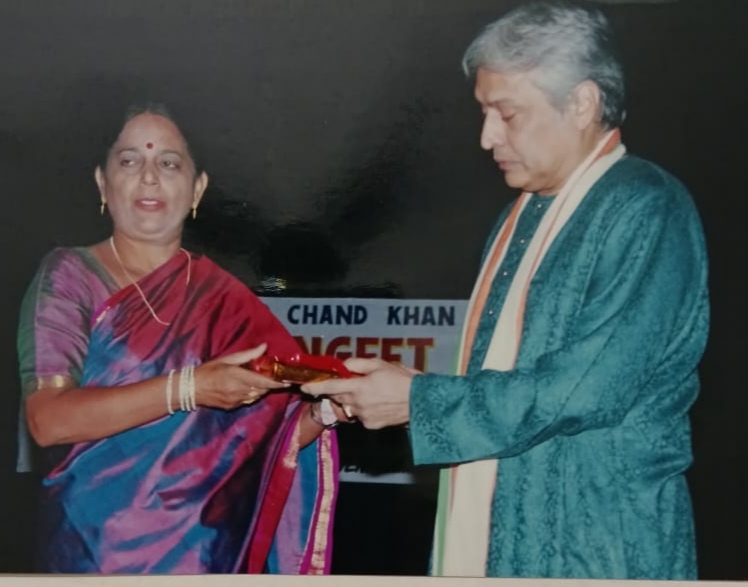
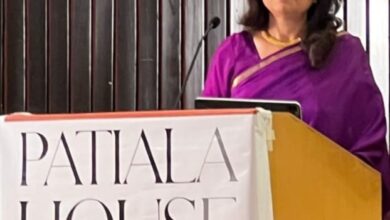
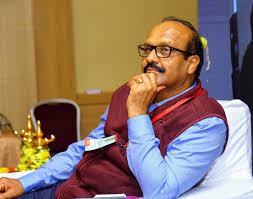
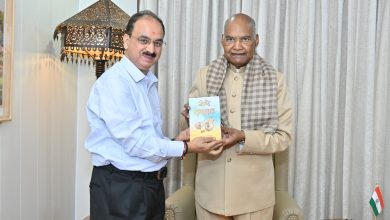
Terrific paintings! This is the kind of info that should be shared around the net. Shame on the search engines for no longer positioning this publish upper! Come on over and consult with my web site . Thanks =)